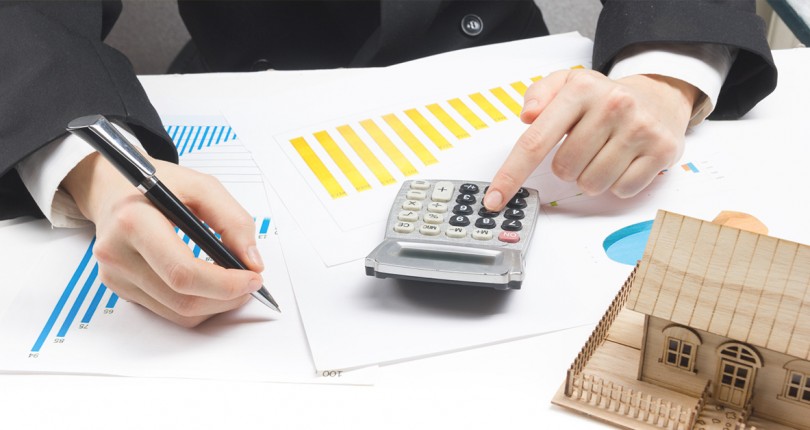The UAE VAT legislation (Federal Decree Law (8) of 2017) will take effect on 1 January 2018. According to the UAE Ministry of Finance VAT will provide the UAE with a new source of income, which will contribute to the continued provision of high-quality public services into the future.
Repercussions Ahead
Analysts and commentators agree there will be repercussions from the introduction of VAT across the UAE’s notoriously price-sensitive real estate sector. This may be particularly so for lease agreements and property purchases as they are considered to be a ‘taxable supply’ under the VAT Law. This will effectively increase the costs of renting or owning property, not good news for investors and owners already feeling squeezed by the strong dollar, low oil price.
The end of 2016 showed a marked drift towards smaller properties in Dubai’s property market as investors owners alike demonstrated a preference for smaller homes that fitted into more restrained funding streams and a more cautious property strategy.
Investors are increasingly price-sensitive and buying lower value properties, while developers responded with smaller unit types with a higher mix of studios and one-bedroom apartments and smaller average unit sizes.
Likely Impact
There VAT regulations treat leasing and purchasing residential and commercial properties differently. In addition to VAT-exempt purchases, there are two VAT rates that will both appear on invoices as of January 1, 2018: zero-rated, and standard rated. Zero-rated VAT is charged at zero percent. Standard rates will be charged at five percent.
Providing real estate properties for rent and purchase is considered to be a “taxable supply” under the framework of the VAT Law. However, the law splits the supply of real estate into several categories. The new VAT Law distinguishes between the lease of residential and commercial properties. It also differentiates between the supply of residential properties by a developer to a “first time” tenant or purchaser and supply from a “first time” or subsequent purchaser to either a tenant or a follow-on buyer.
Key Definitions & VAT Rates
Two key definitions refer to the two VAT categories. Firstly, some goods are deemed to be VAT” exempt”. In these instances, no VAT is charged on the supply and there are VAT-able supplies.
With VAT applicable supplies, there are two VAT rates, firstly zero-rated and standard-rated supplies. Zero-rated indicates the supplier does charge VAT but at a zero rate (i.e. zero percent), and the second rate is where VAT is charged at the standard rate of five percent. In these instances, the customer invoice will itemize an additional five percent VAT as a separate line item on the invoice.
VAT Treatment
- Bare Land: The supply of “bare” or unimproved land will be exempt from VAT.
- Residential Property: The “first time” supply of residential properties by developers within three years of completion will be zero-rated for both rental and purchase. Anyone either renting or buying residential property as a “first-time” tenant or “first-time” purchaser will not pay VAT on the lease amount or the purchase price. Moreover, residential leases or any purchase of residential property from a “first-time” purchaser will be exempt from the VAT. Hence no VAT will be payable on either the lease amount or the purchase price on any subsequent residential leases or purchases.
- Commercial Property: VAT will be payable at the standard rate of five percent on all commercial properties, including both purchase and rental. With effect from January 1, VAT will be payable by commercial tenants and buyers.
In the event a commercial lease agreement does not include a provision for VAT, it will be deemed that VAT is inclusive of the rental amount stimulated in the lease agreement. If both the tenant and the landlord are registered as VAT vendors it shall be deemed that the lease amount is exclusive of VAT, and thus VAT will be charged on the lease amount.
In this scenario, the lessee will effectively be charged zero VAT, as the VAT amount payable will be reclaimable against the output VAT charged by the tenant. Secondly, if the rental period of a lease spans January 1, VAT will be payable on the prorated portion of the rental from 1 January 2018 through to the expiry of the lease. VAT on the lease will be payable even if the full year’s rental has been paid in advance prior to January 1, 2018.
Summary
- Bare, or unimproved land will be exempt from VAT
- First-time supply of residential properties by developers within three years of completion will be zero-rated for both buyers or tenants
- First-time residential property renters will not pay VAT on the lease amount
- First-time residential property buyers will not pay VAT on the purchase price
- VAT will be payable at the standard rate of five percent on all commercial properties, both for rental and purchase, with variations depending on the specific scenario
- Service charges, cleaning services, and utility charges will attract the standard VAT five percent rate
Anecdotal evidence suggests many contractors appear undecided as to how to approach their VAT charges when preparing for a future project.
Some contractors are distributing preemptive letters clearly stating that all prices specified are subject to revision after the official introduction of the VAT on 1 January 2018.
Inevitably, is creating a lack of clarity on what property prices could be eventually once the disruption caused by the VAT has worked its way through the real estate industry.
In the meantime, some relief will be felt from the decision to exempt residential off-the-plan sales on details Ashe Morgan from the VAT, but future construction cost-driven inflation effects could be reflected in future sale prices.



